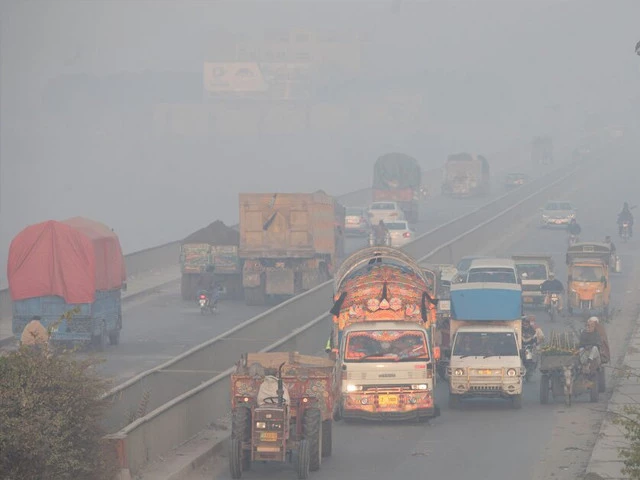Smog in Lahore. Photo file: REUTERS
Lahore has risen to become the second most polluted city in the world, according to global air quality monitoring organization IQAir. On Sunday, the city’s air quality index (AQI) was recorded at 209, placing it just behind Indian capital New Delhi, which topped the list with an AQI of 218.
The Punjab Environment Protection Agency (EPA) reported that easterly winds contributed to worsening smog conditions in Lahore. The agency predicted the city’s average AQI would remain between 195 and 210 throughout the day, classified as “very unhealthy.” Experts have further warned that air quality may deteriorate in the coming days due to increased fireworks displays during Diwali celebrations in India.
Environmental health experts have called this level of pollution dangerous, especially for children, the elderly and people with respiratory illnesses, advising them to stay indoors and limit their outdoor exposure.
Read: East wind worsens smog in Lahore
According to the Pakistan Meteorological Department, the wind speed is expected to vary from 1 to 9 kilometers per hour, which may temporarily improve air quality around noon. The AQI is expected to drop to 150 between noon. and 5 p.m., before going up again between 165 and 200 p.m.
In response to the deteriorating conditions, the Punjab government has intensified its anti-smog operations in Lahore. On the directives of Chief Minister Maryam Nawaz Sharif, the Environment Protection Force, police, Water and Sanitation Agency (WASA) and the district administration launched joint crackdown against smoke-filled and overloaded vehicles entering the city. Trucks and carts carrying construction materials without proper coating are also stopped.
To control dust emissions, night watering operations are carried out on construction sites. The Chief Minister asked all concerned departments to submit daily progress reports and strengthen public awareness campaigns regarding smog prevention.
Learn more: Punjab bans use of charcoal, wood in restaurants to curb deteriorating air quality
Meanwhile, the campaign against stubble burning continues across Punjab. The provincial government has deployed 91 balers and 814 Kubota machines to collect crop residues from thousands of acres and turn them into fodder bales. Experts say the initiative represents a positive step toward reducing air pollution and mitigating the effects of smog.




